 Email: support@vespaagogo.com
Email: support@vespaagogo.comFood & Beverages
- Home
- Travel Tips
Common Questions for Vietnamese Food: Safety, Dietary Needs, and Tips for Travelers
2025-09-01
Vietnamese cuisine is globally celebrated for its fresh ingredients, bold flavors, and street food culture. However, for many travelers, especially first-time visitors, it's natural to have concerns about food safety, dietary restrictions, and special needs like halal, gluten-free, or vegan options. In this guide, we answer some common questions for Vietnamese food to help you enjoy this culinary paradise safely and deliciously.
Is the Ice in Vietnam Safe to Drink?
A common concern for travelers is whether the ice in Vietnam is safe to drink. The short answer is: usually, yes, but with some precautions.
In cities like Ho Chi Minh City, Hanoi, and Da Nang, most restaurants, cafes, and hotels use factory-made ice, which is generally safe. This type of ice typically comes in cylindrical shapes with holes in the middle—a good sign it was commercially produced with filtered water. Avoid ice that looks crushed or irregular if you're not sure of its source, especially in remote or rural areas.
Pro tip: If you have a sensitive stomach or are recovering from food poisoning, opt for drinks without ice or bottled beverages.
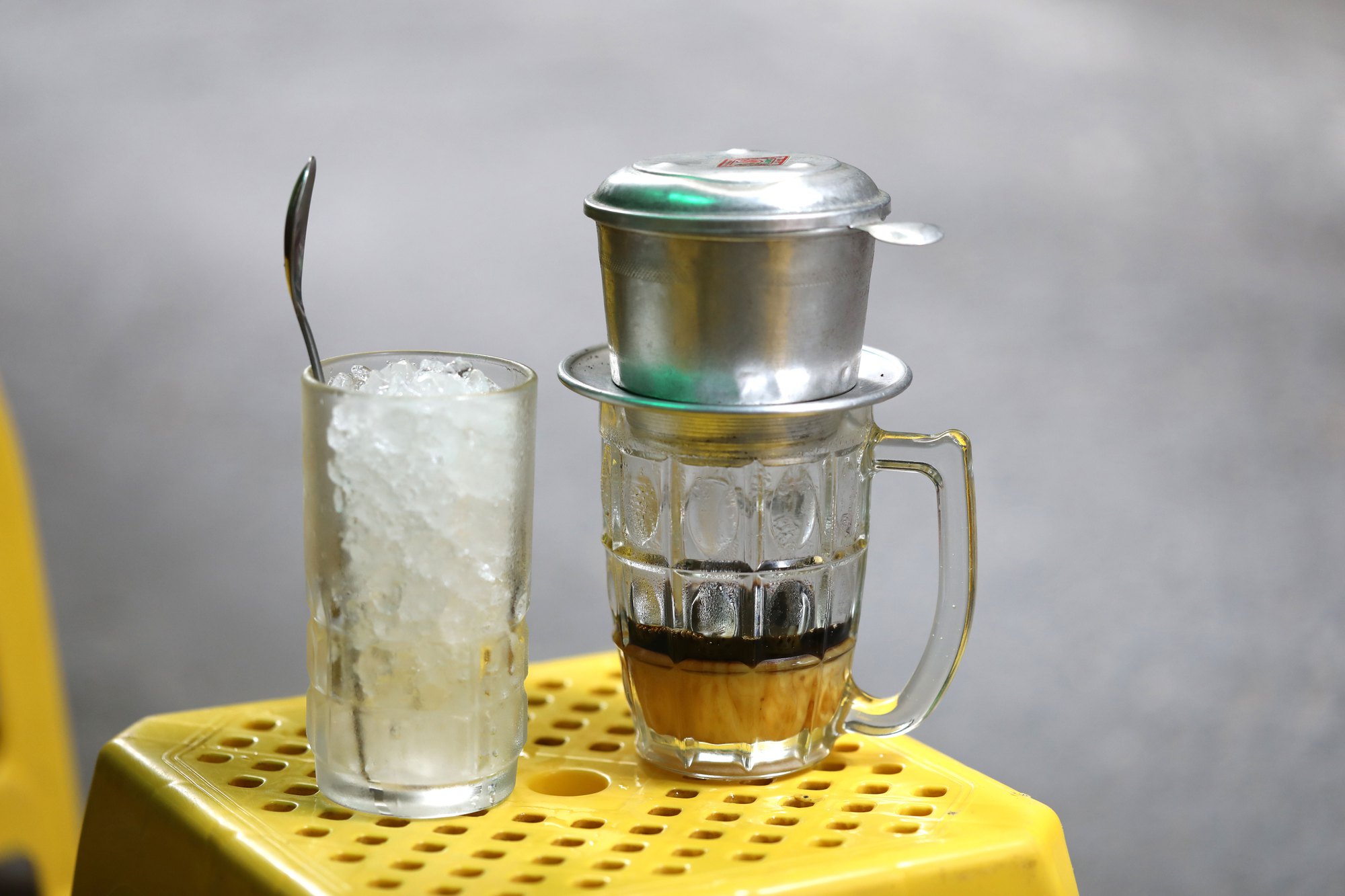
Is the Street Food in Vietnam Safe?
Vietnam is famous for its vibrant street food culture, but many visitors wonder: Is the street food in Vietnam safe?
Street food in Vietnam is safe to eat in most cases, provided you follow a few simple guidelines:
- Look for busy stalls with lots of local customers. High turnover usually means the food is fresh.
- Where you can see your food being made (especially if it’s a street stall or cart): If it’s hot and cooked in front of you, it’s less likely to cause issues.
- Avoid pre-cut fruits or salads sitting in the open sun. Opt for fruits you can peel yourself.
- Use hand sanitizer before eating.
Popular and generally safe street foods include pho, banh mi, grilled meats with rice, noodle soup and fresh spring rolls.
Pro tip: For Saigon’s street food heaven, check THIS out
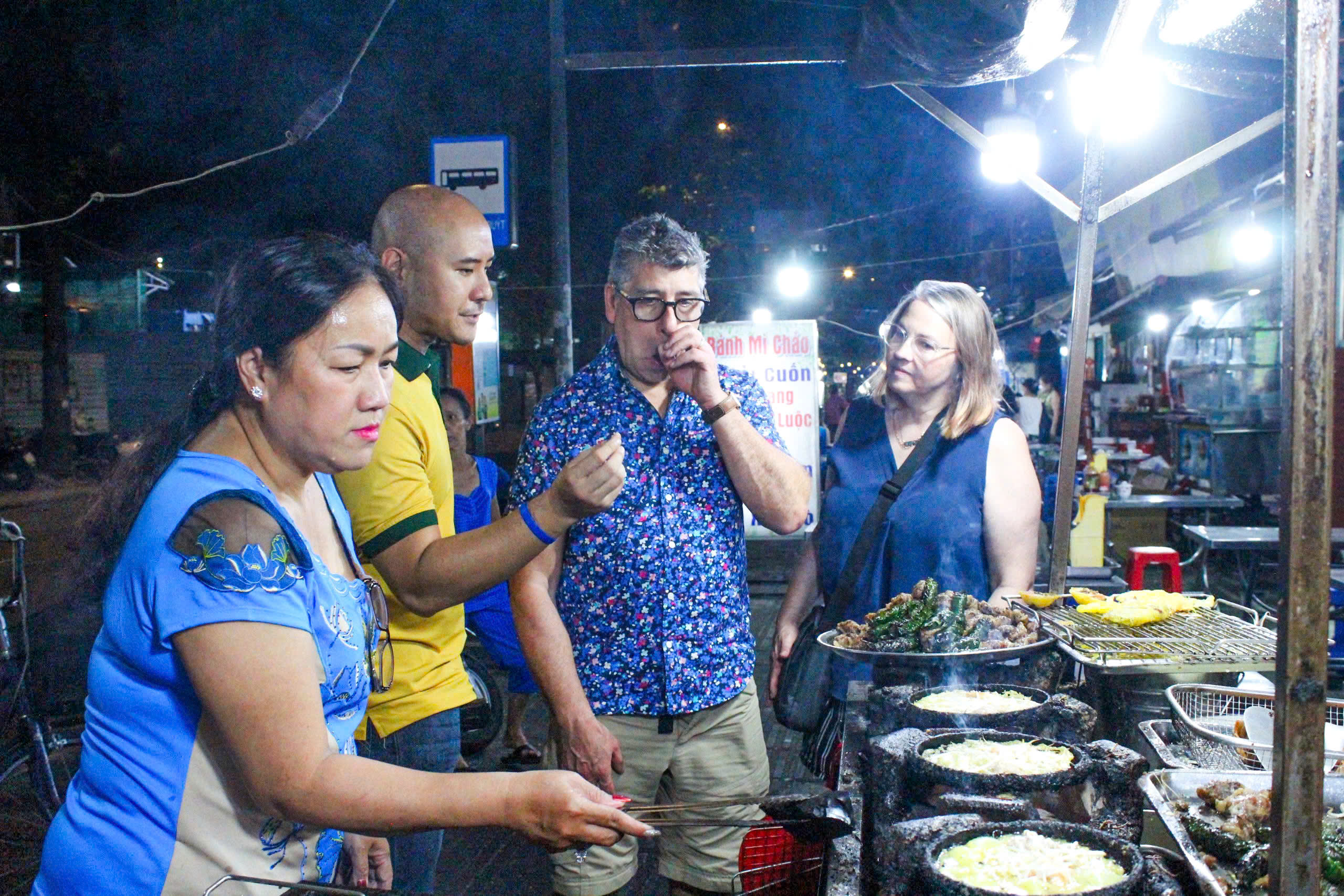
Is It Easy to Travel in Vietnam as a Vegetarian or Vegan?
Many travelers ask: Is it easy to travel in Vietnam for vegetarian or vegan diets? The answer is yes, with some effort and local knowledge.
Vietnamese cuisine includes many plant-based dishes, and Buddhist vegetarian culture has influenced many regional meals. Look out for restaurants or signs with “chay” (vegetarian) or “quán chay” (vegetarian restaurant), or just simply search “vegetarian restaurants” on Google Maps.
Common vegetarian/vegan dishes include:
- Bánh xèo chay (vegetarian sizzling pancake)
- Phở chay (vegetarian pho)
- Cơm chay (rice with assorted vegetarian dishes)
However, fish sauce (nước mắm) is used in many recipes, so it’s important to ask specifically if it’s used. Learn the phrase: “Tôi ăn chay, không nước mắm” (“I eat vegetarian, no fish sauce”).
You can read more about our vegetarian food in Saigon here
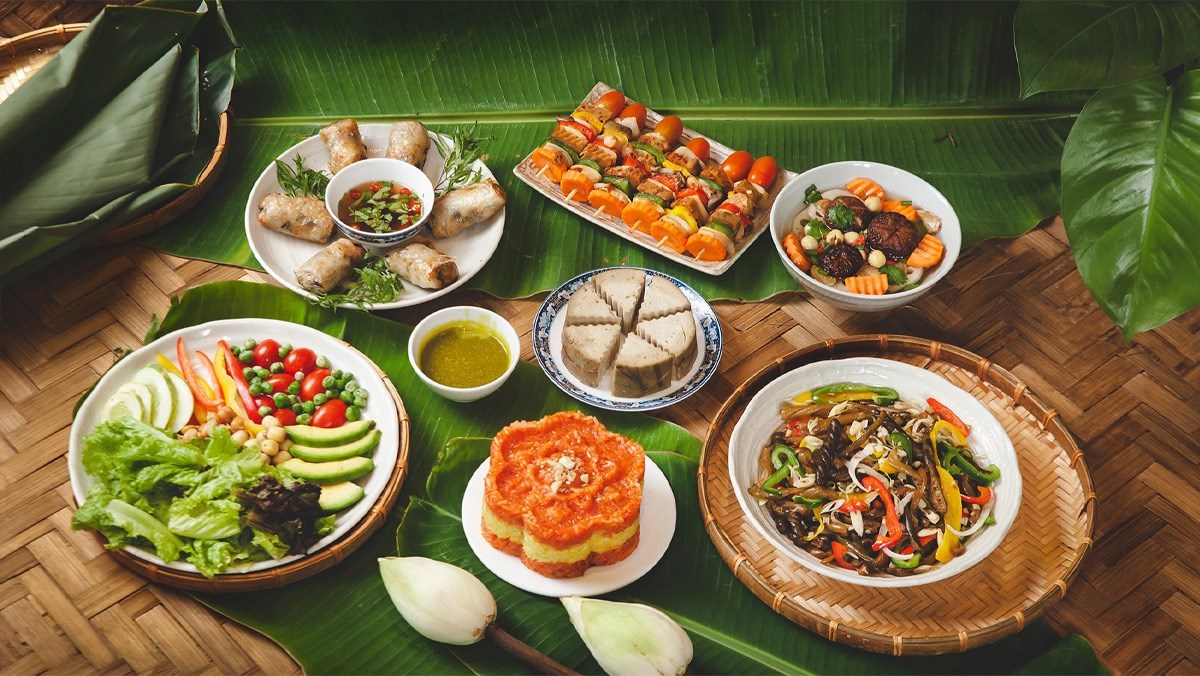
Gluten-Free Food in Vietnam
Another frequent question: Is it easy to find gluten-free food in Vietnam?
Vietnamese cuisine can be a gluten-free-friendly paradise, but cross-contamination is possible. Many dishes are made from rice noodles and rice paper, which are naturally gluten-free. Some great options include:
- Phở (rice noodle soup)
- Bún chả (grilled pork with rice vermicelli)
- Gỏi cuốn (fresh spring rolls)
- Cơm tấm (broken rice with grilled meat)
Watch out for soy sauce and hoisin sauce, which may contain wheat, as well as vietnamese sausage/cold cuts (aka chả lụa). If you are celiac, it’s wise to carry a Vietnamese-language gluten-free card explaining your needs.
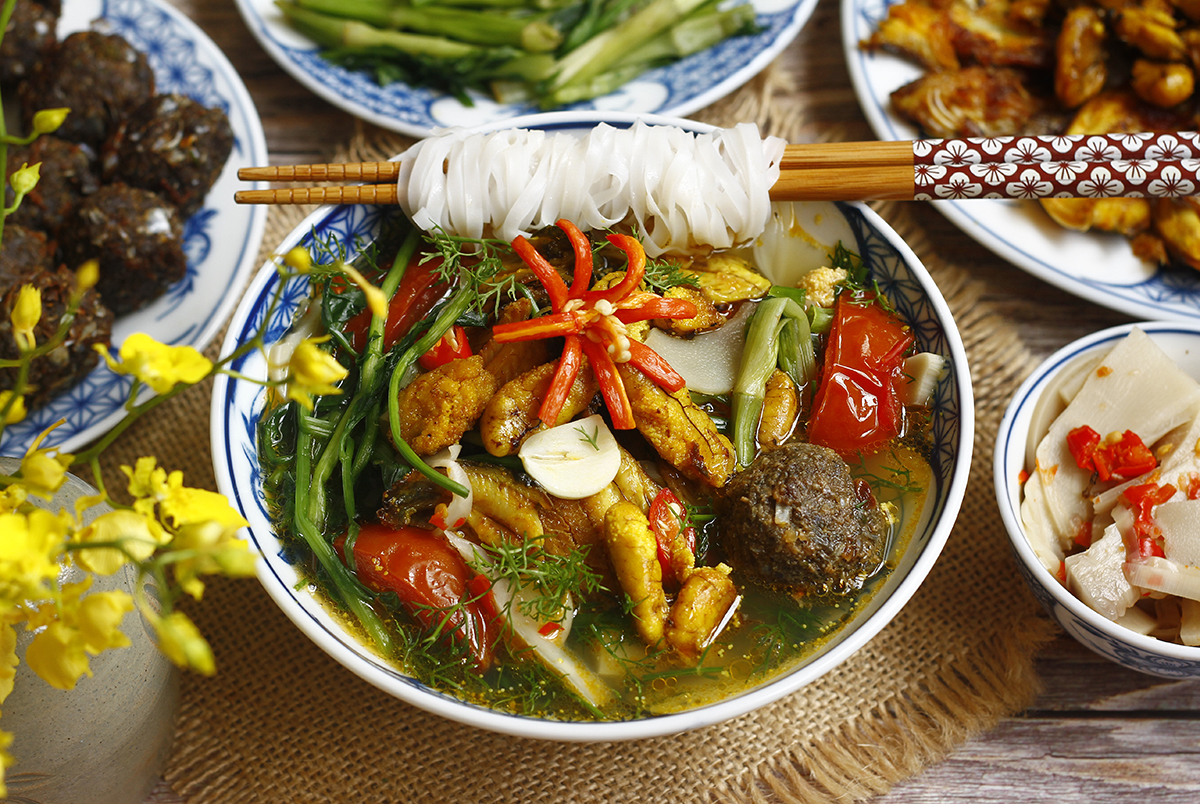
Halal Food in Vietnam
For Muslim travelers, the question arises: Is there halal food in Vietnam?
Yes, though halal food options are more limited outside major cities. In Ho Chi Minh City, Hanoi, and Da Nang, there are dedicated halal restaurants and even mosques nearby, particularly in areas like District 1 in Saigon.
Many halal eateries serve Malaysian, Indian, or Middle Eastern cuisine, but some also offer Vietnamese dishes prepared halal-style, if cooked without pork and with halal-certified meat, such as:
- Halal phở
- Halal grilled chicken rice
- Halal bánh mì
Look for halal certification signs, or just use the same old trick by typing in “halal restaurants in Saigon” on Google, thanks to the ever-growing internet.
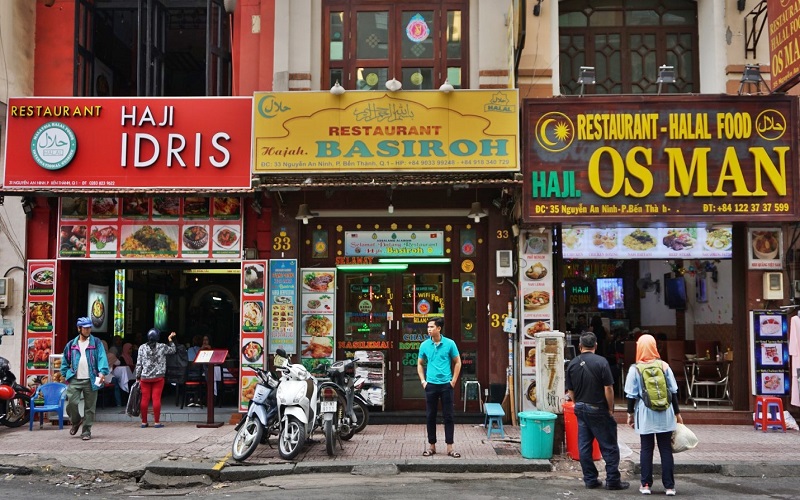
Should I join a food tour if I have food allergies/restrictions?
The short answer is “Yes, you should”, as long as you disclose your conditions to the tour operator before. No one knows the food scene better than the locals who specialize in it. Although we cannot speak for all the food tour operators in Vietnam, at Vespa A Go Go, we have received multiple inquiries and requests about food restrictions from our guests, from “do you accommodate vegans on your tour”, “I’m allergic to shellfish” to “I only eat halal food” and “I’m gluten free and lactose intolerance”... With our experience, we assure that our guests can still have a full experience of Saigon while still taste excellent food that is catered to their diets.
No matter what type of allergies, restrictions and diets that you have, as long as we are informed beforehand, you will still see Saigon’s bustling nightlife on our carefully curated route with your friends and other guests on our ultimate foodie adventure by scooter, while our staff makes sure you will have your tasty alternative dishes to enjoy without having to worry about your restrictions.
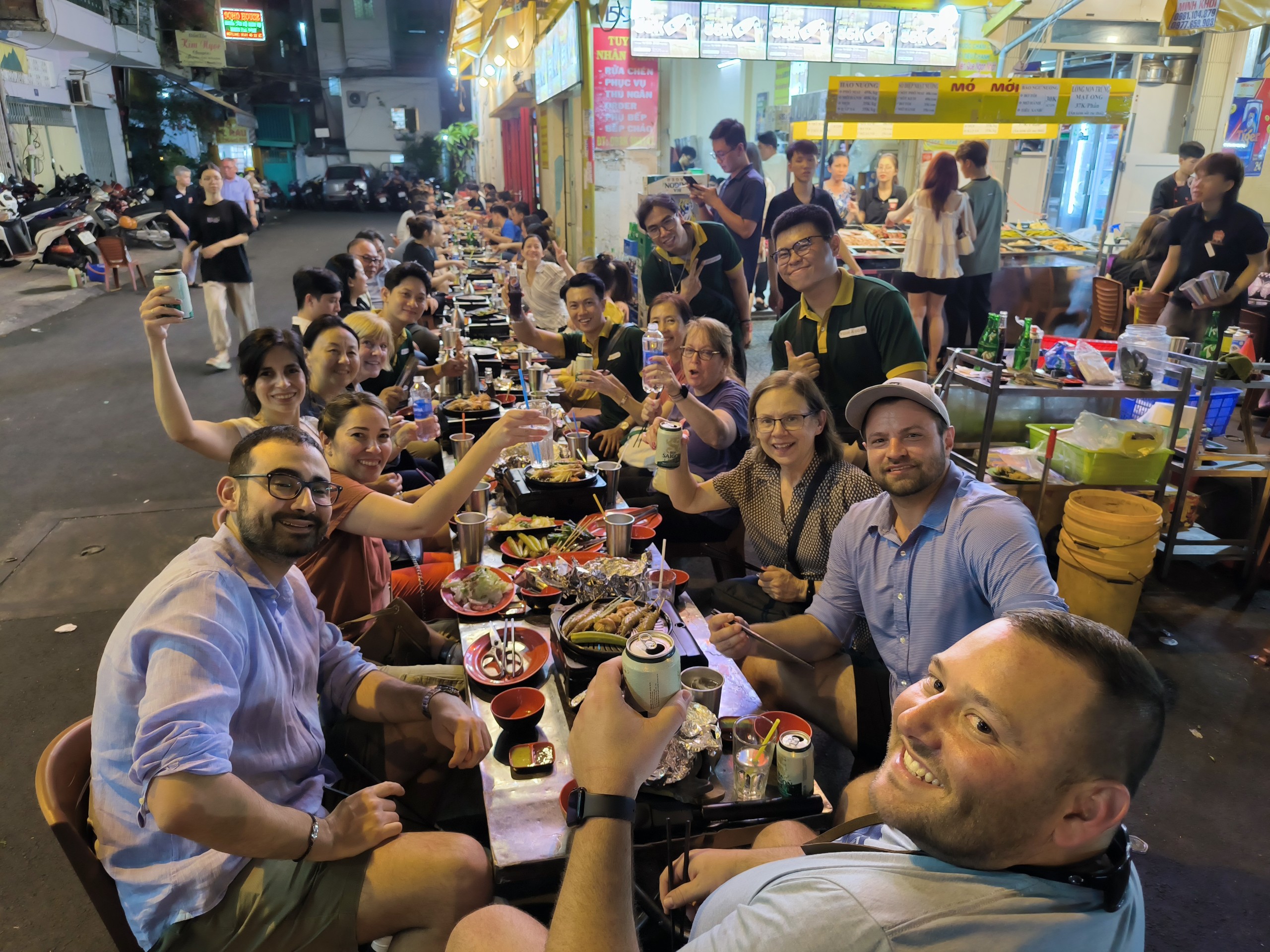
Some Tips for Enjoying Vietnamese Food Safely and Deliciously
Here are a few bonus tips to answer other common questions for Vietnamese food:
- Drink bottled water and avoid tap water.
- Peel fruits yourself to reduce risk.
- Learn a few key food phrases in Vietnamese to help with dietary needs.
- Try food tours for a curated and safe street food experience.
Vietnam’s cuisine is diverse, fresh, and exciting. With a little preparation and awareness, you can enjoy it while meeting your dietary needs and staying safe.
Other tips
- Authentic American and Mexican Restaurant in Saigon
- Chinese Restaurant in Saigon
- Breakfast Food Vietnam: How Locals Really Eat in the Morning (And Why Fast Food Failed)
- The Vietnamese Duck Egg Craze: Why This Delicacy Reigns Supreme in Vietnam
- Popular Vietnamese Snacks: 21 Street Eats You Can't Miss
- What is Vietnamese Broken Rice? History & Best Spots in Saigon
- Vietnamese Bun Rieu: The Ultimate Insider’s Guide to Vietnam’s Famous Crab Noodle Soup
- Hu Tieu Noodles: The Ultimate Guide to Saigon's Secret Soul Food
- 15+ Best Pho in Ho Chi Minh City (2025 Update)
- Common Questions for Vietnamese Food: Safety, Dietary Needs, and Tips for Travelers
- A Saigon Insider's Guide to the 20 Best Coffee Shops You Can't Miss in 2025

